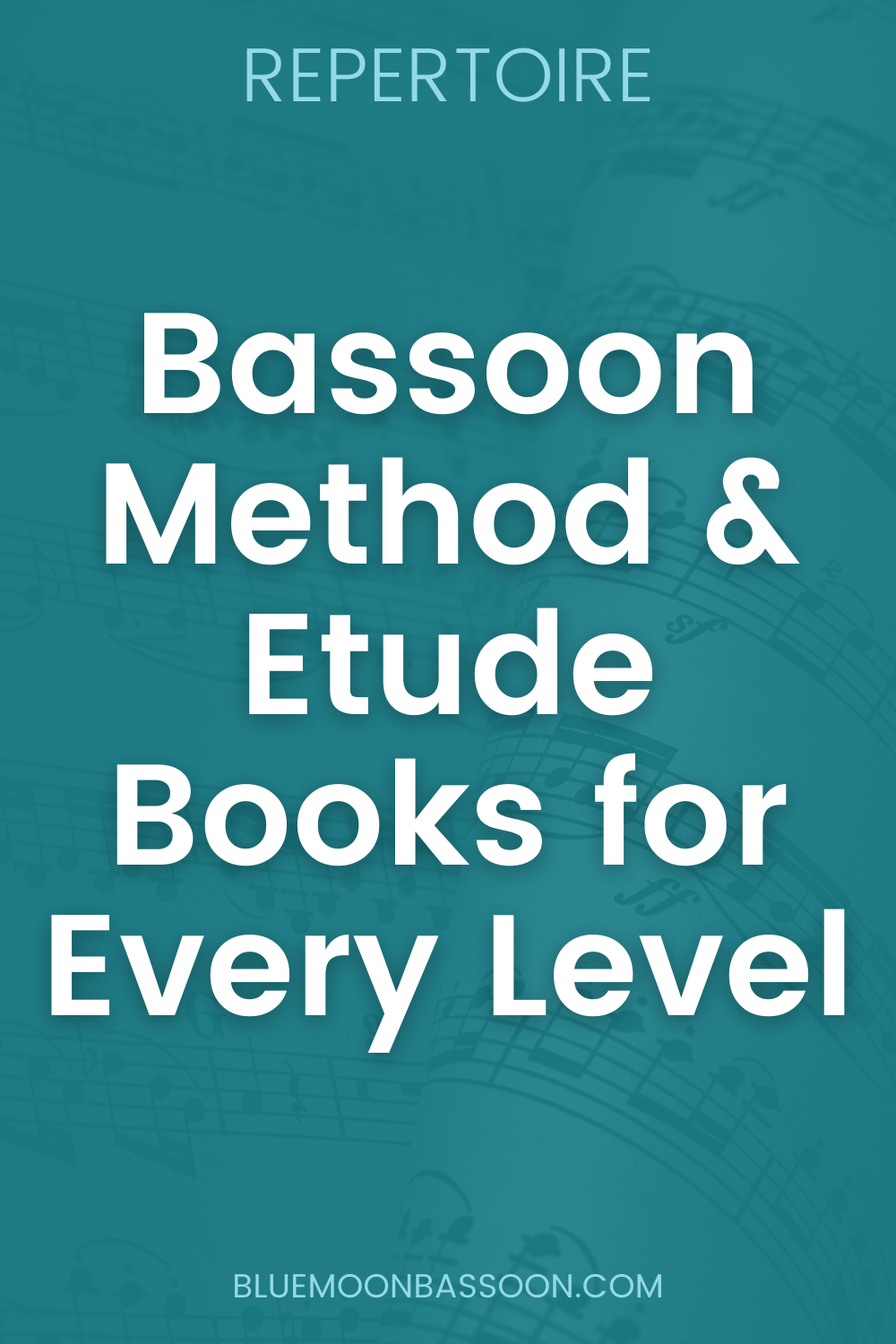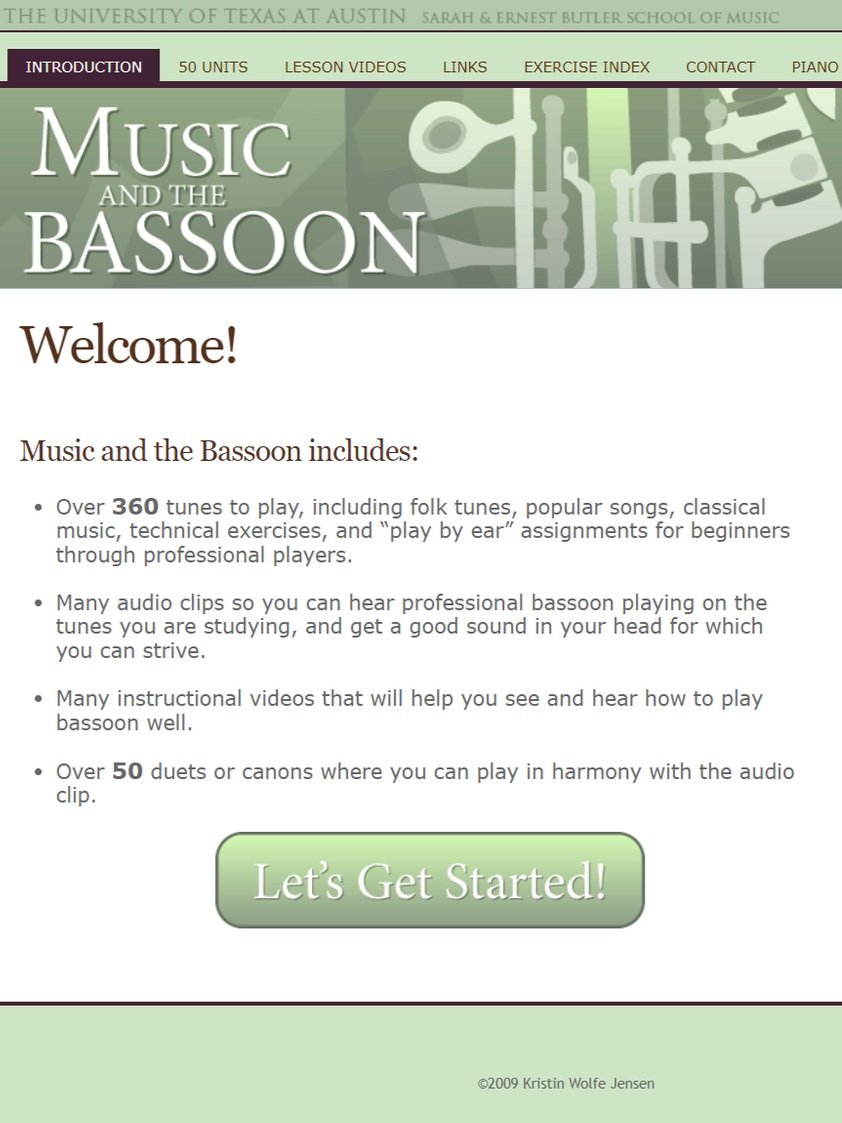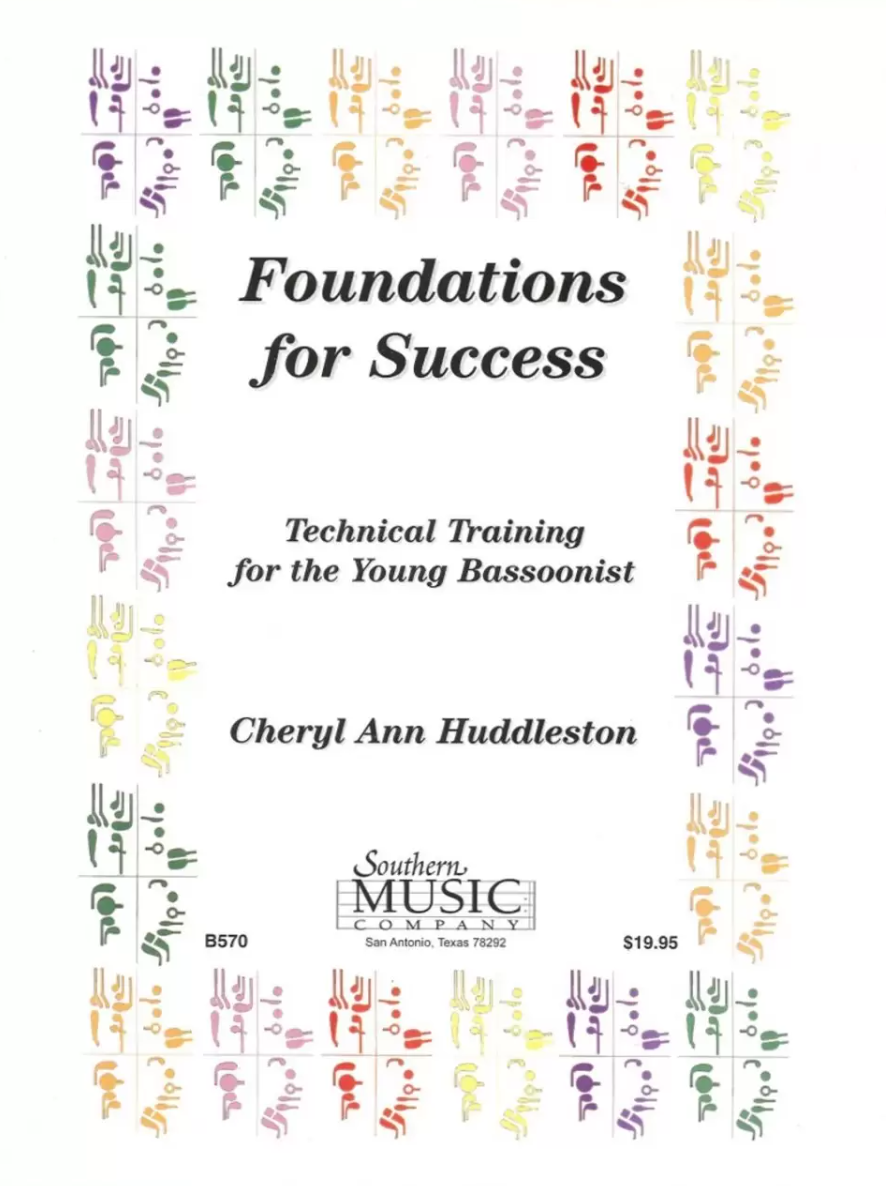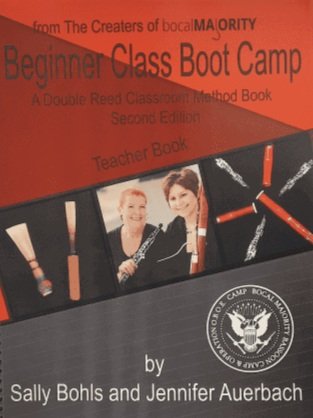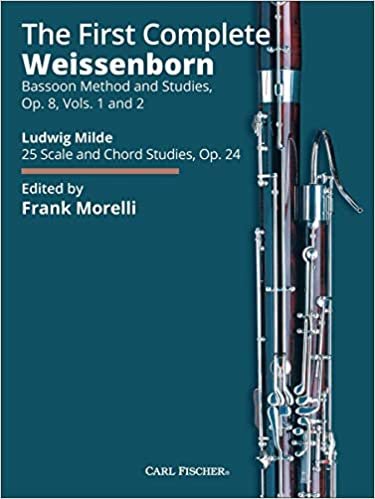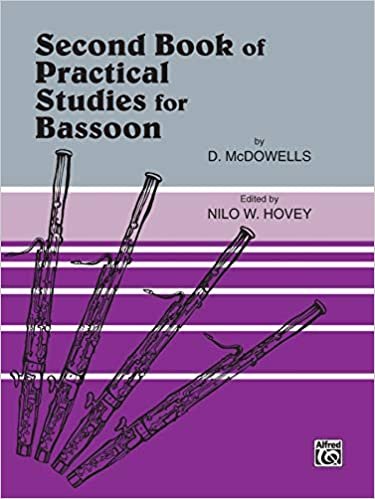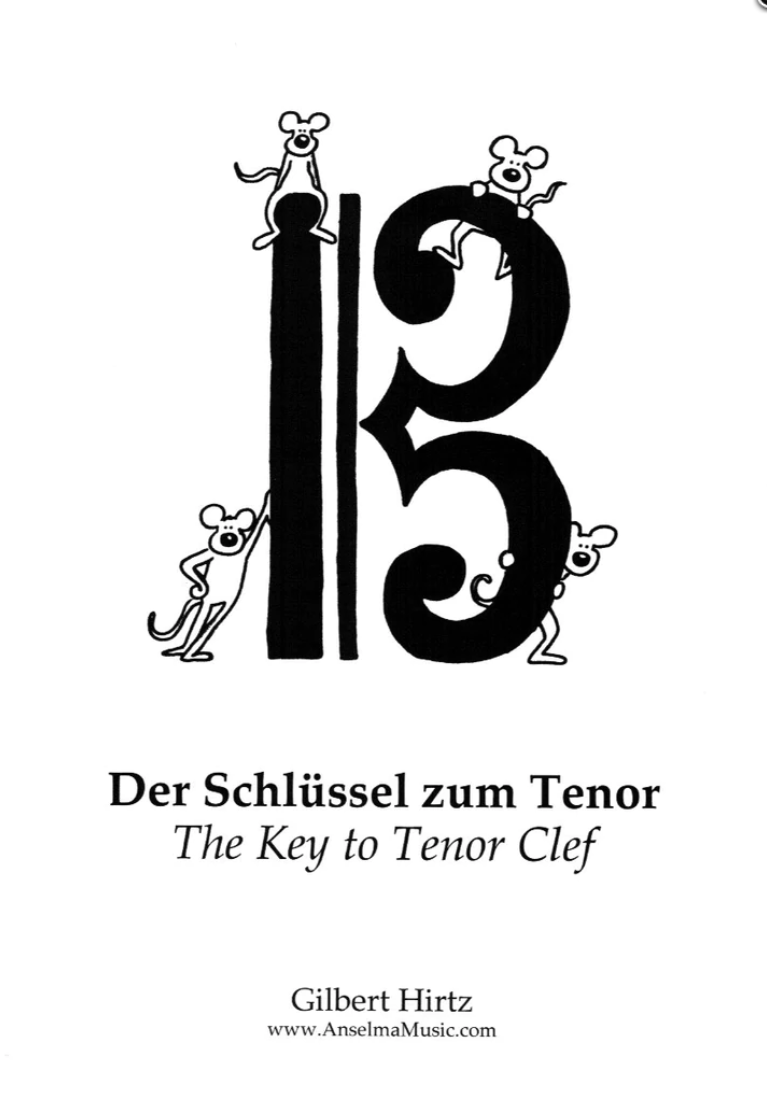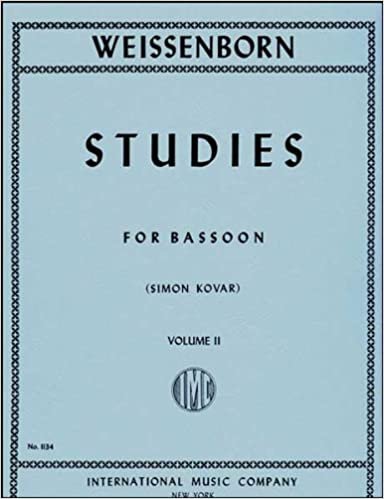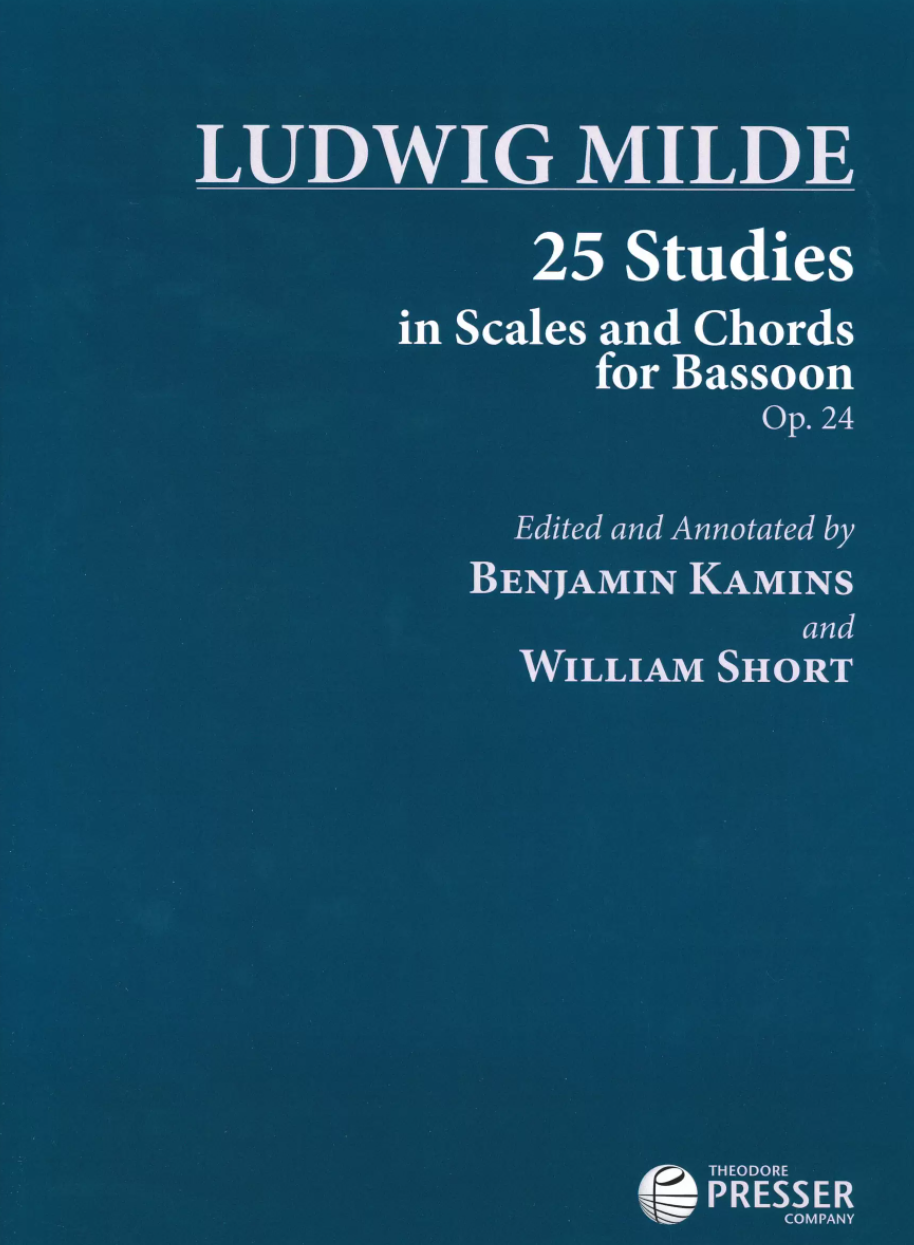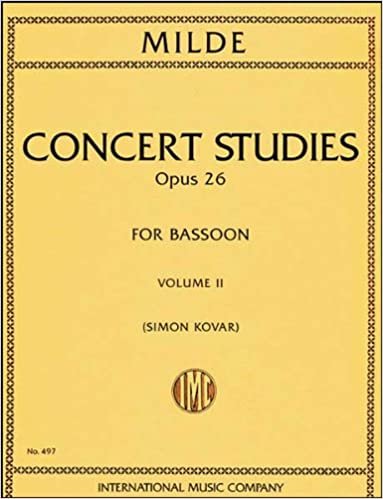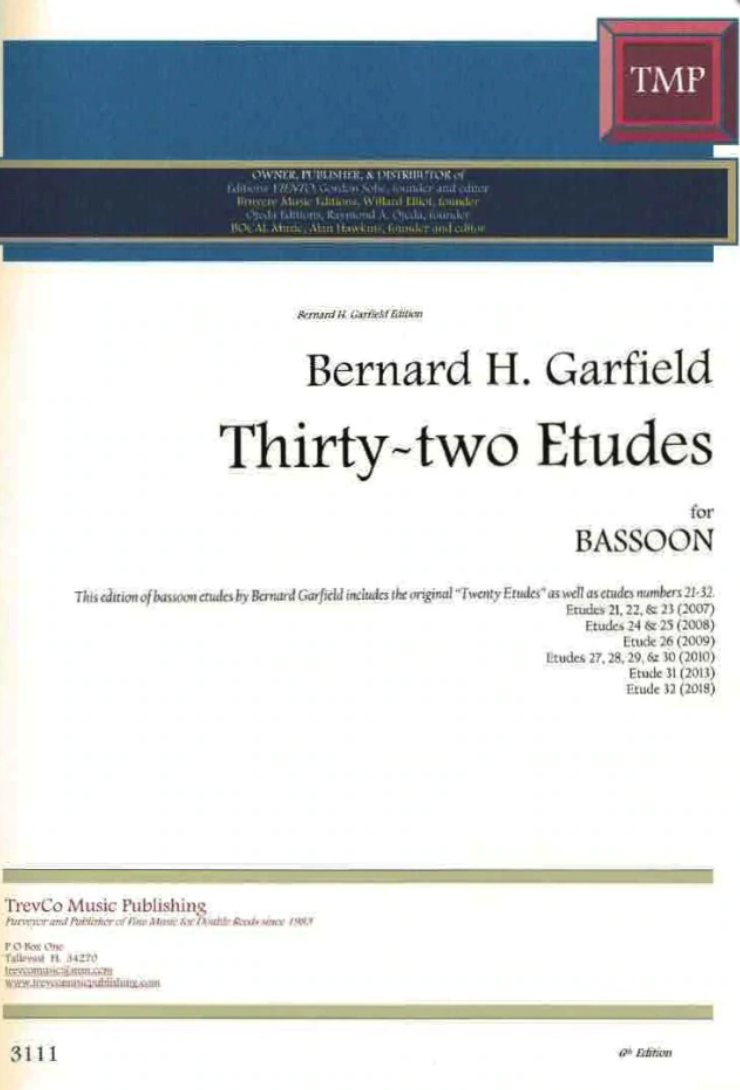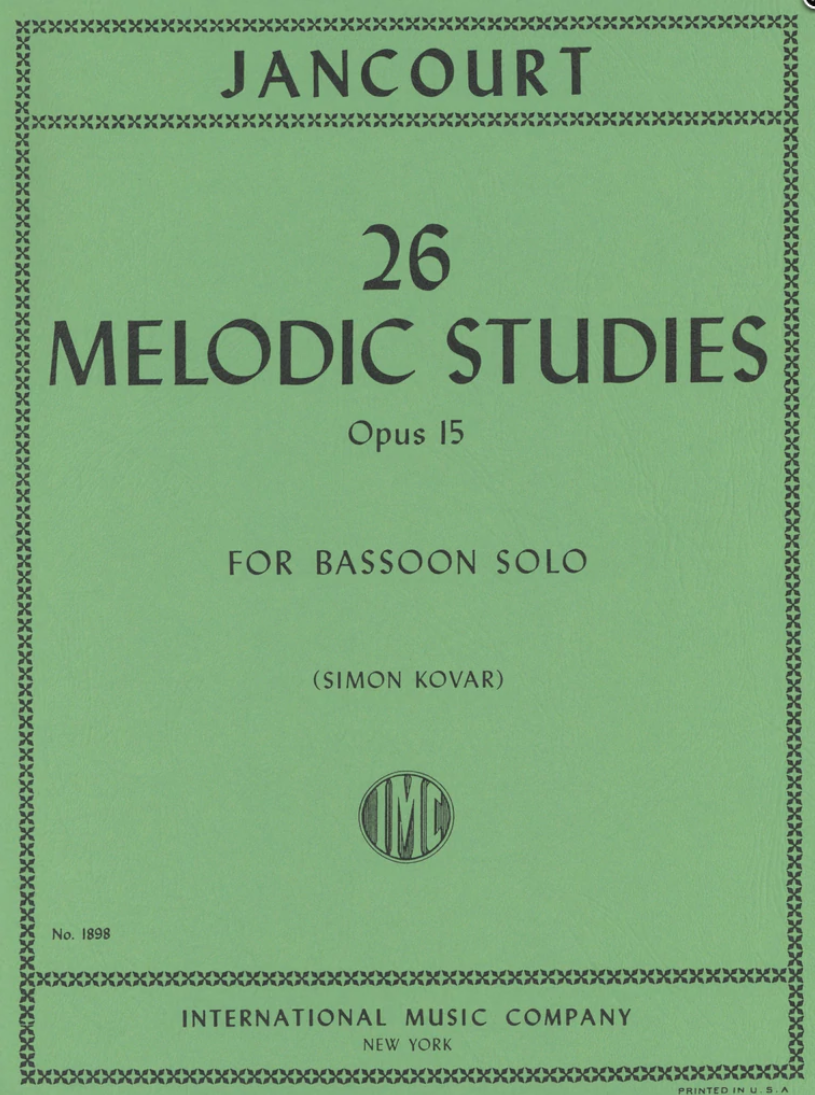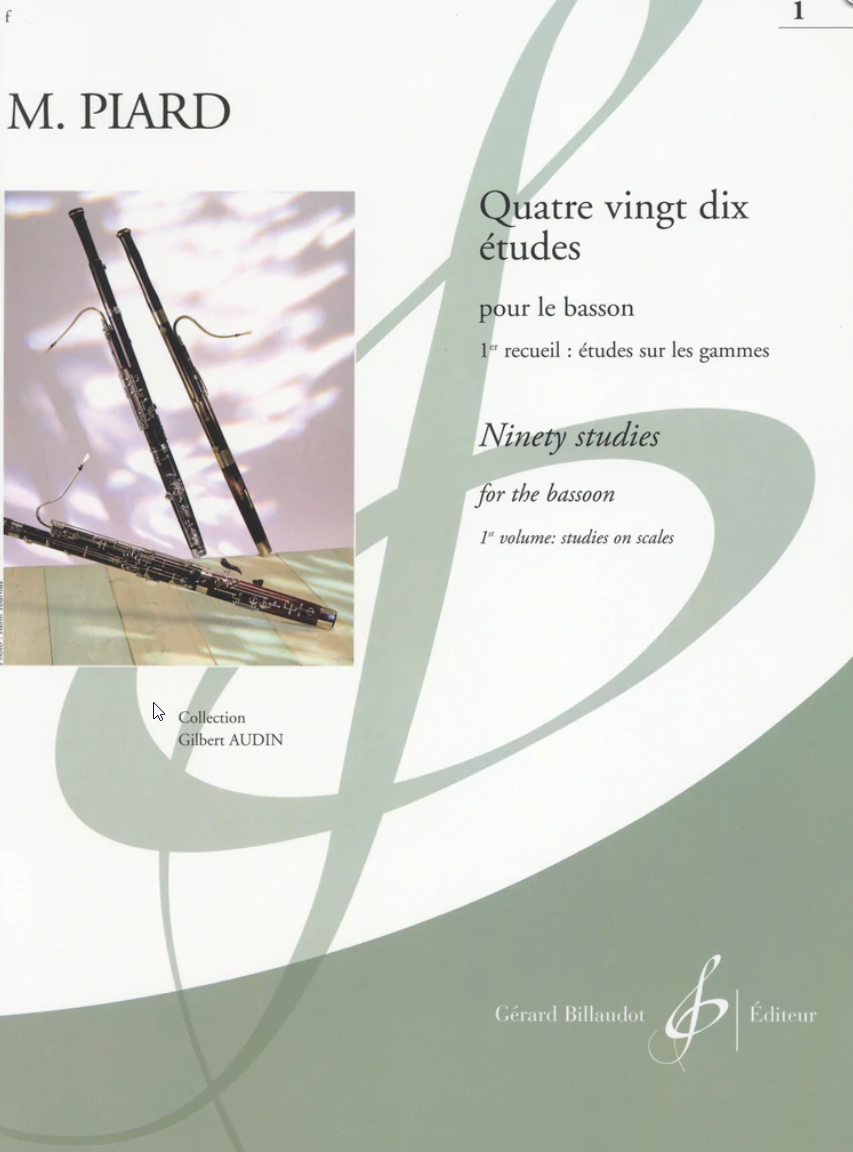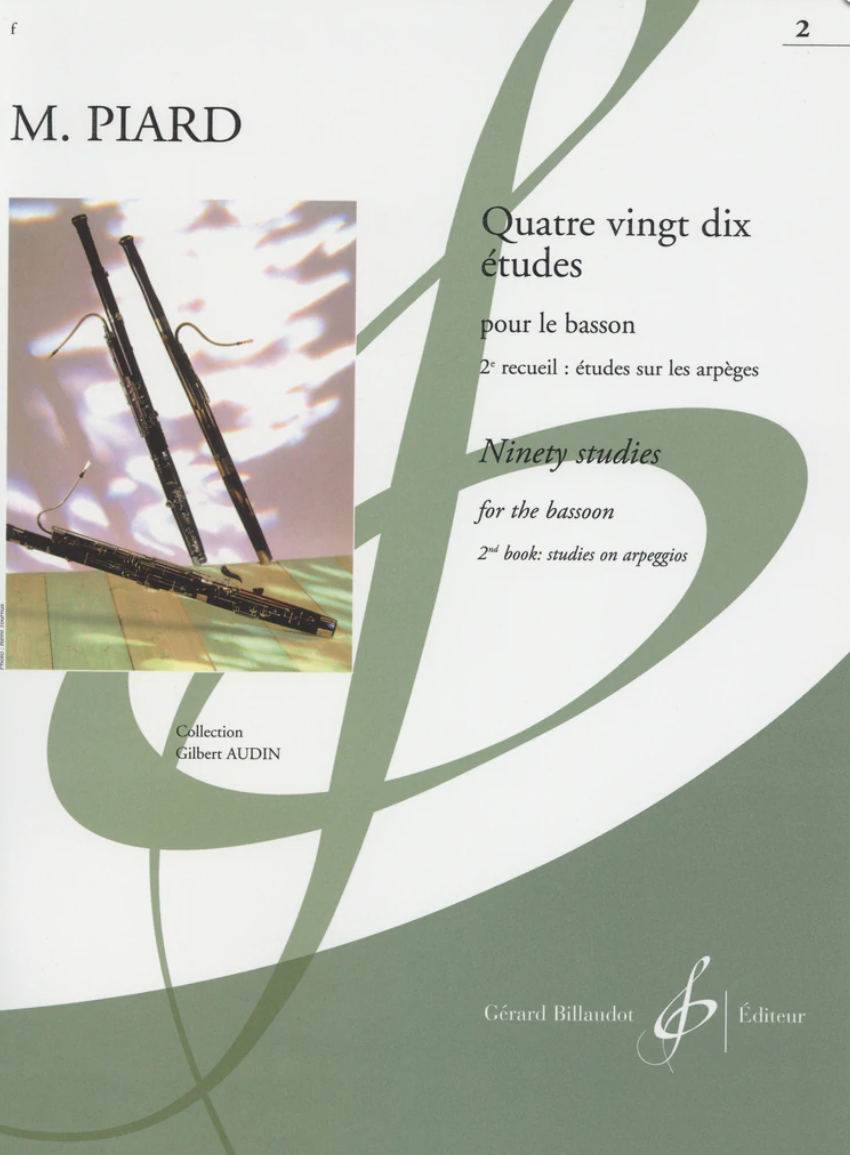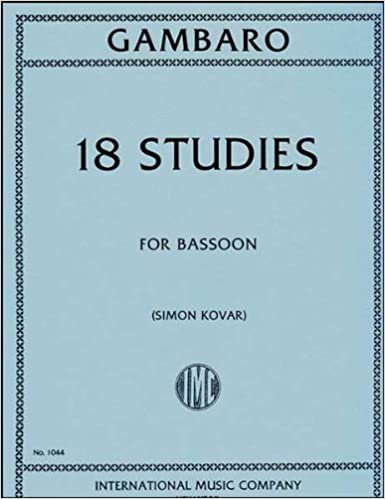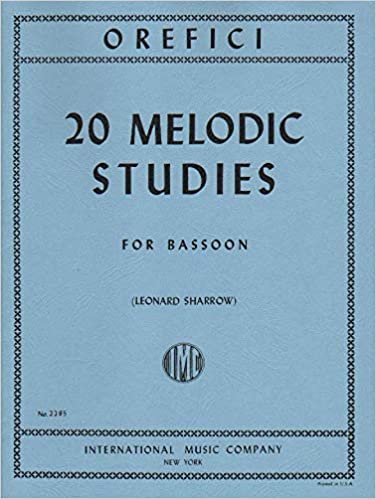16 Most Useful Bassoon Method And Etude Books for Every Level
Etude and method books are incredible tools for learning bassoon. These books are essential for students and teachers alike. And they can also offer structure to students hoping to learn the bassoon on their own!
I used a variety of books as a young bassoonist, many of which I later used to teach my own bassoon students. There are so many incredible bassoon resources nowadays. In this list, you'll find books published hundreds of years ago and modern online methods.
Let’s dive in with a brief overview of how to use methods and etudes in your bassoon playing. Then I’ll share a list of my favorite bassoon method and etude books for beginner, intermediate, and advanced bassoonists.
🔍 What is a method book?
Think of a method book like a musical textbook. Method books contain a variety of exercises and short pieces. These books teach new skills in a specific order to build strong bassoon basics. Method books are especially great for beginners because they offer a guided curriculum. Often method books contain helpful diagrams or text to explain musical concepts.
🔍 What is an etude book?
Etude (étude, French: “study”) books are collections of short pieces. They usually explore a specific concept and encourage mastery of a specific set of techniques. Etudes may focus on a particular key, technique, range, or style. Many etudes are beautiful enough to perform on their own. Others are more technical and are best used to hone special bassoon techniques or test playing ability in lessons.
📚 How should you use method and etude books in your practice?
Both method and etude books are useful for bassoonists of all levels! When first starting on the bassoon, or for those that are self-taught, a method book is a must-have. Method books provide extra guidance that ensures that you build a strong foundation before moving on to more difficult techniques.
Use your etude books alongside method books or solo repertoire. You may choose an etude book to improve a particular skill. Or look for etudes that explore different styles, key signatures, and clefs. It is a good idea to select an etude book that is the appropriate level of difficulty to help you push your musical abilities without creating bad habits.
Pro tip: I always have an etude book on my music stand to work through as part of my warm-up routine. First, I run through long tones and scales. Then I usually practice an etude before moving on to excerpts, solos, and concert repertoire.
🔥 Beginner Method & Etude Books
Here are a few of my favorite method and etude books for beginner bassoonists. I’ve used each of these successfully in bassoon lessons and find them all very helpful and comprehensive. These method books are ideal for bassoonists who are just starting out. They will help you learn the first notes on the bassoon and progress to bassoon scales and easy melodies.
📕 Music & the Bassoon by Kristin Wolfe Jensen
Music & the Bassoon is a FREE online bassoon method created by Kristen Wolfe Jensen, Professor of Bassoon at the University of Texas at Austin. It has 50 units of fun melodies, simple exercises, recorded duets, and instructional videos for bassoon techniques such as flicking and vibrato. It’s an amazing, accessible online resource.
Best for—Bassoonists who want to learn how to play but don’t have a teacher or private lesson teachers who want a great method to follow in lessons with beginners.
📕 Foundations for Success: Technical Training for the Young Bassoonist by Cheryl Ann Huddleston
This beginner bassoon method book is ideal for brand new bassoonists. It includes 16 lessons, from first notes to playing complete scales on the bassoon. I particularly love how simple and effective the exercises are. Each line focuses on a specific technique and encourages mastery through repetition. This book does a great job of building bassoon basics and good habits. I loved using this book in lessons as a warm-up with students and seeing them perfect each exercise.
Best for—Private lesson teachers who want to encourage strong bassoon fundamentals or beginner bassoonists who want simple, repeatable exercises to master new skills.
📕 Bocal Majority: Beginner Class Bootcamp by Jennifer Auerbach & Sally Bohls
This double reed method book is a set of classroom materials for beginner double-reed classes. This book starts from day one of playing and takes the class through the end of the first year of playing. It includes a variety of helpful exercises and short melodies. Many band directors feel behind on their double reed knowledge. This book provides a complete curriculum to build great bassoon players.
Best for—Band directors who are teaching a beginner double reed class and want a comprehensive method book for the first year.
📕 #BassoonGoals Getting Started: Workbook for Beginners by Amanda J. Pierce
Shameless self-plug, this is my beginner bassoon method book! I created this short workbook to take bassoonists from playing their first sounds on the reed through their first scale. The book introduces new notes gradually to build confidence. It includes a detailed bassoon care guide, fingering chart, and workbook checklist.
Best for—Self-taught beginners or private lesson teachers who want a quick and easy method for starting new bassoonists.
🔥🔥 Intermediate Bassoon Method & Etude Books
These intermediate bassoon books include a wide range of notes, key signatures, and rhythms. Before exploring these books, intermediate bassoonists should be comfortable with bass clef and most major scales.
📕 Practical Method for Bassoon by Julius Weissenborn
Julius Weissenborn designed this complete system of lessons and exercises, published in 1887. Many bassoonists would consider this to be THE essential bassoon method book. Generations of bassoonists have learned from this method book, myself included! The Weissenborn Method includes a variety of exercises, scales, arpeggios, and short pieces.
I'm a huge fan of the recent Frank Morelli Edition, which includes the original Weissenborn Method, 50 Advanced Studies, and Milde 25 Scale and Chord Studies. Morelli improved the organization of exercises, added helpful facts, and included new duets! This book is so comprehensive and well designed that it could serve as your only method book. It’s also available in a standard and spiral-bound edition.
Best for—Bassoonists and private lesson teachers who are looking for one complete method and etude book for beginner through advanced levels. This book has everything!
📕 Blue Moon Bassoon Songbook by Amanda J. Pierce
Another one of my books! The Blue Moon Bassoon Songbook is a collection of folk and classical melodies arranged for bassoon. This book will take the beginning bassoonist from their first songs to their first orchestral excerpts. I used this book in lessons with all my middle school bassoon students. They enjoyed the variety of songs, beautiful illustrations, and fun chapter themes. I had great success getting students to practice these pieces on their own.
Best for—Beginner through intermediate-advanced students and private lesson teachers looking for fun repertoire that will keep students engaged.
📕 Book of Practical Studies for Bassoon, Vol 1 & 2 by D. McDowells
The Weissenborn etudes are great, but they are too difficult for many intermediate bassoonists. I used the McDowells Book of Practical Studies Vol 1 & Vol 2 with many younger students. I also used them for remedial rhythm and note practice as needed. These pieces are short and work well for improving technique and rhythmic integrity. They also make great etudes for practicing sightreading! Section one contains studies for rhythmic development in a variety of tempos. Section two focuses on scales, arpeggio, and interval exercises.
Best for—Band directors and private lesson teachers seeking supplemental etudes to improve rhythm and articulation. Intermediate bassoonists who want to improve their sightreading skills.
📕 Key to Tenor Clef by Gilbert Hertz
This is my favorite method book for teaching tenor clef! It provides a great step-by-step process for learning this clef. The book includes a variety of short songs and duets that progress in difficulty and range. I used this book with every student who was learning tenor clef. The Key to Tenor Clef also makes a great sightreading book. It's perfect for those who can already read tenor clef but want to improve their fluency.
Best for—Private lesson teachers who want a method for teaching tenor clef. Bassoonists who need an easy to follow plan for learning tenor clef.
📕 50 Advanced Studies, Op. 8 by Julius Weissenborn
The Weissenborn 50 Advanced Studies form the second part of the Weissenborn Bassoon Method. The Morelli First Complete Weissenborn Edition includes these studies. You can also buy the standalone book or access them online. These 50 etudes written by Julius Weissenborn progress quickly in difficulty and length. Most teachers consider these etudes essential learning for any serious bassoonist. I have played through these bassoon etudes many times, and I continue to revisit them to refine my skills. This book is sometimes used for the Texas All-State Bassoon Audition Music.
Best for—Intermediate and advanced bassoonists looking for challenging and diverse repertoire to improve their technical and musical skills.
🔥🔥🔥 Advanced Bassoon Method & Etude Books
These advanced bassoon books require a high level of competency on the bassoon. Advanced bassoonists should be proficient in the entire range of the instrument. They should also have excellent rhythmic and technical skills. Tenor clef fluency will be essential to performing these pieces.
📕 25 Studies in Scales and Chords, op. 24 by Ludwig Milde
Milde was a bassoonist, composer, and teacher born in Prague in 1849. My favorite edition of the Milde Studies in Scales and Chords is the recently released version by Benjamin Kamins and William Short. This new edition is a beautiful, easy-to-read reprint with added notes, practice tips, and alternate fingerings. These challenging technical exercises are perfect for developing even resonance and rhythmic fingering. I always have this book out on my music stand. If you buy the Morelli Weissenborn Edition, these are included!
Best for—Advanced bassoonists who want to hone their technical and musical fluency in all key signatures.
📕 Concert Studies, Op. 26 Vol 1 & 2 by Ludwig Milde
I started learning these etudes for the TMEA All-State Auditions in high school. As a young bassoonist, these etudes challenged me and pushed me far beyond my comfortable limits. In college, the Milde Concert Studies Vol 1 & Vol 2 were the foundation of my private bassoon studies. The etudes are quite long and can take a lot of practice to master. But, they are wonderful for expanding musical expression and challenging your technical limits. This book is sometimes used for the Texas All-State Bassoon Audition Music.
Best for—Pre professional bassoonists aiming to expand their technical abilities and musical expression.
📕 32 Etudes by Bernard Garfield
These highly original etudes by renowned bassoonist Bernard Garfield are challenging and varied. The etudes use the full range of the instrument and are suitable for the college level and professional bassoonist.
According to the composer: "With my book of etudes, I had in mind the further development of the extreme register of the bassoon. The language of my music is a combination of years of orchestral playing, plus the piano works I studied in my youth, and endless hours of accompanying my brother, a gifted violinist. If I were to use words to describe my compositions, they would be expressive and melodic.”
Best for—Professional bassoonists looking for unique etudes to expand their musical expression.
📕 26 Melodic Studies, op. 15 for Bassoon by Eugene Jancourt
Eugène Jancourt lived in France from 1815-1901. Jancourt was a composer and teacher at the Paris Conservatoire. These 26 etudes are part of his "Grande Méthode théorique et practique" op. 15". The etudes vary quite a bit in difficulty. But, the melodies are interesting and harmonically rich while providing a technical challenge.
Best for—Advanced bassoonists looking to explore music by a French composer in a variety of styles.
📕 Quatre Vingt Dix Etudes, Vol 1 & 2 by Marius Piard
Translated as “90 studies”, these challenging etudes were written by the French Bassoonist and pedagogue Marius Piard. The etudes actually only include 60 studies, as Vol. 3 is currently out of print. The two volumes contain thirty studies each on scales on arpeggios in all major and minor keys.
Best for—Advanced bassoonists who have worked through the Milde 25 Scale Studies and are looking for a new challenge.
📕 18 Studies for Bassoon by Giovanni Battista Gambaro
Gambaro was an Italian composer who lived from 1785-1828. I worked through his book of 18 Studies while studying at Florida State University. They were essential in developing my musical expression, dynamic range, and articulation. They contain minimal dynamics, so they provide an excellent blank slate to explore your musical taste and expression.
Best for—Advanced bassoonists looking to expand their tools of musical expression through a series of classical etudes.
📕 Twenty Melodic Studies by Alberto Orefici
Alberto Orefici (1868-1920) was an Italian bassoonist and pedagogue. These 20 Melodic Studies are heavy on the tenor clef and have a huge variety of key and time signatures. This collection presents an excellent, compact variety of styles and tempos as well.
Best for—Advanced bassoonists looking for a short collection of varied challenging melodic etudes.
Bassoon etude and method books are essential tools for students and teachers. They can be used alongside solo repertoire and excerpts to improve technique, intonation, tone, and musical expression while expanding our knowledge of key signatures, time signatures, and styles.
This is by no means a complete list of every bassoon and method book, but I hope this guide will help you explore some of the great bassoon repertoire and find the right etude book for your needs!
If you’re looking for more information about bassoon etude and method books, check out these resources:


